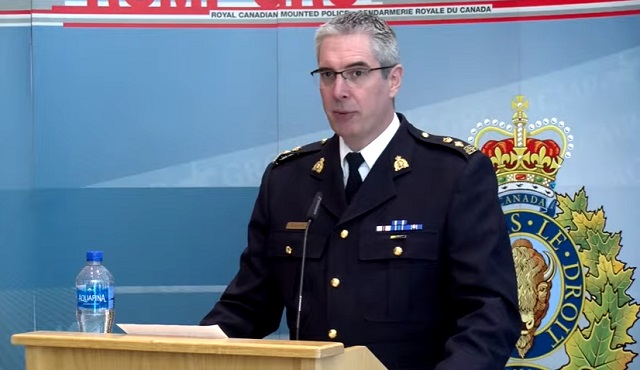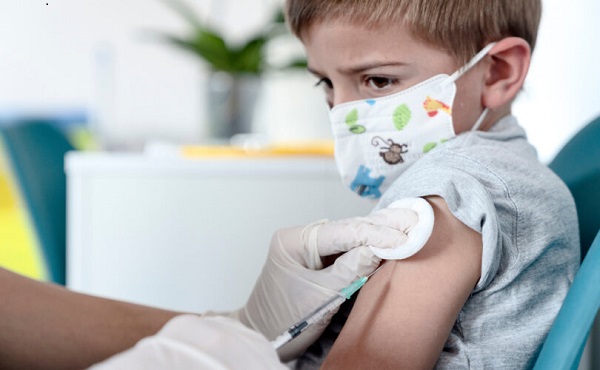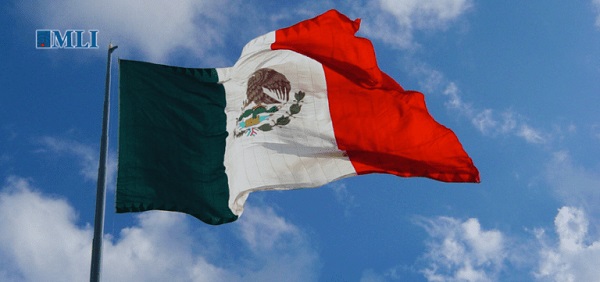Alberta
Alberta RCMP announce results of investigation into the 2017 UCP Leadership Vote

News release from the Alberta RCMP
Alberta RCMP concludes investigations surrounding the 2017 UCP Leadership Vote
In July 2017, the Wildrose Party and the Progressive Conservative Party merged to form the United Conservative Party (UCP). A UCP leadership contest followed, which was an internal UCP process with no oversight from Elections Alberta, except as it related to the Alberta Election Finances and Contributions Disclosure Act (EFCDA).
On Oct. 4, 2017, Jeff Callaway dropped out of the race and publicly endorsed Jason Kenney. On Oct. 28, 2017, Kenney was officially elected as the new UCP leader. Allegations of wrongdoing surfaced after the leadership contest. In February 2019, a complaint was received by the Alberta RCMP in relation to these allegations, which resulted in the RCMP opening an investigation into two separate allegations.
Allegation #1 – Jeff Callaway candidacy
One allegation was that Callaway entered the contest solely to attack another candidate, always with the intention of pulling out of the leadership race and endorsing a different candidate prior to the vote. Given the allegation that this candidate had portrayed himself as a legitimate candidate and, as a result, was able to solicit money from individuals who believed he was a legitimate candidate, fraud contrary to section 380 of the Criminal Code, was identified as the appropriate offence to be investigated:
- Investigators reviewed the candidate’s campaign debates and political advertisements used during the campaign. A review of the campaign’s financial records showed that, as a result, it was able to generate approximately $95,000 in financial contributions. Elections Alberta investigated Callaway’s campaign finances under the Alberta Election Finances and Contributions Disclosure Act. The results of Elections Alberta’s investigation are posted on their website.
- Alberta RCMP Investigators conducted more than 170 interviews with contributors and campaign staff, and examined over 25,000 related emails.
Outcome #1: The investigation did not uncover evidence to establish that Callaway, or any other person, committed a criminal offence.
Allegation #2 – Voter Fraud
In order to vote, a UCP member needed to register and receive a Personal Identification Number (PIN), either by phone call, email, or text message. Once the PIN was received, the member could then cast a vote by phone or by using a proprietary electronic voting platform on the internet.
The allegations were that emails were created in order to receive PINs and vote on peoples’ behalf without their consent or knowledge. Identity Fraud contrary to section 403 of the Criminal Code was identified as the appropriate offence to be investigated under the circumstances:
- The online platform used by the UCP to hold the leadership contest was identified and the RCMP obtained the voter database through a legal process, which contained data for more than 60,000 voters.
- The RCMP analysed the data and identified several suspicious cross-sections of voters where multiple votes were cast from the same phone number, or originated from the same IP address. Similar to an in-person ballot, the data did not show which candidate was voted for, only that a vote had been cast using that unique identifier.
- The RCMP generated a list of these “suspicious votes,” conducted interviews with the more than 1,200 individuals and examined their UCP membership and registration forms.
- To be clear, the number of potential votes at issue, which after investigation was less than 200, would not have impacted the leadership contest given that Jason Kenney won with 36,625 votes (61%), whereas Brian Jean received 18,336 votes (31%), followed by Doug Schweitzer with 4,273 votes (7%).The RCMP investigation did not find evidence that any leadership candidate encouraged their volunteers to engage in identity fraud.
- The service provider for the online voting platform used by the UCP was not compromised, and worked exactly as specified.
This high-profile investigation was extremely complex, and time consuming due to several factors:
- The sheer volume of data being analysed and investigated took a significant amount of time. Further, a portion of this data required that judicial authorizations be obtained both domestically and outside of Canada.
- The fact that the complaint was not received until 2019 impacted many witnesses’ recollections of the event. The 2017 UCP Leadership Contest occurred at the same time as other internal party votes. As a result, some witnesses were unclear about which process the RCMP were investigating.
- Even for cases that appear to be voter fraud, there can be innocent explanations. For example, it wasn’t illegal for one phone number or email to receive many PINs. It was also not illegal for many votes to be cast from the same IP address or phone number. In certain families living under the same roof, this was common. We also saw the same pattern in office buildings and at voting kiosks where many people voted from the same IP.
Outcome #2: While the Alberta RCMP determined that there were suspected instances of potential identity fraud, there was insufficient evidence to charge any suspect, again there was no evidence that any leadership candidate orchestrated these relatively rare instances.
The decision on whether or not to lay a charge in Alberta rests with the police. However, throughout this investigation, the RCMP did seek advice from Crown, which began in Alberta, but was later referred to the Ontario Ministry of the Attorney General who assigned Crown Prosecutors.
These Crown Prosecutors provided valuable and timely advice throughout our investigation and their assistance was greatly appreciated
It should be noted that these allegations of possible voter fraud occurred during an internal political party voting process, and in no way represents any possible fraud or shortcomings in our general provincial and federal elections.
Nothing in the investigation suggested that the UCP failed to take reasonable steps to manage their internal process. We hope that the information shared today will further reduce the risk of similar incidents occurring in the future for any political party.
The investigators received cooperation from the UCP and the leadership candidates which
assisted in moving the investigation forward.
“We would like to highlight that in investigating allegations of criminality, the thoroughness and completeness of the investigation is the standard that should be assessed and that the lack of criminal charges should not be the test of a successful investigation,” said Superintendent Rick Jané of the Alberta RCMP. “In this case, experienced criminal investigators tested these allegations. In the end, Albertans can be confident that a thorough investigation, independent of government, was conducted.”
Video of News Conference: https://www.youtube.com/@RCMPAlbertaGRC/streams
Key Statistics:
Investigators
- 65 Investigators
o 5 core investigators
o 60 additional investigators seconded for varying lengths of time
o 10 public service employees assisted in various capacities
Investigation
- 1,200 voter canvass interviews
- 563 structured interviews
o 226 hours of audio
o Conducted by two interviewers
o Totaling 420 person-hours worked
Translation
- Translation was required for Arabic, South Asian and Chinese languages
- Investigators were sourced from “K” Div Federal Policing; Auto-theft; Digital Forensic Services Units; as well as Airdrie, Canmore, Red Deer, Thorsby, High River, and Maskwacis RCMP Detachments to fulfill this need.
Financial
- $460,877 in overtime and travel expenses
o $356,288 in overtime
o $104,589 in travel expenses, with $38,647 in out-of-province expenses
Travel
- 12 out of province trips (BC, Ontario, Nova Scotia) involving 22 members
- There was no international travel
Documentation
(warrants, sealing orders, production orders, information to obtain, administration, mutual legal assistance requests)
- 7,484 PDF documents (totaling 69,922 pages)
- 20,625 digital files (totaling 54 GB of data)
Alberta
On gender, Alberta is following the science

Despite falling into disrepute in recent years, “follow the science” remains our best shot at getting at the truth of the physical sciences.
But science, if we are to place our trust in it, must be properly defined and understood; it is at its essence an ever-changing process, a relentless pursuit of truth that is never “settled,” and one that is unafraid to discard old hypotheses in the face of new evidence.
And it is in this light—in the unforgiving glare of honest science—that Alberta Premier Danielle Smith’s three new legislative initiatives around gender policy are properly understood, notwithstanding the opprobrium they’ve attracted from critics.
Bill 26, the Health Statutes Amendment Act, proposes to prohibit the prescription of puberty blockers and cross-gender hormones for the treatment of gender dysphoria to youth aged 15 and under. It would allow minors aged 16 and 17 to begin puberty blockers and hormone therapies for gender “reassignment” and “affirmation” purposes only with parental, physician, and psychologist approval. The bill also prohibits health professionals from performing sex reassignment surgeries on minors.
Bill 27, the Education Amendment Act, seeks to enshrine parents’ rights to be notified if their kids change their names/pronouns at school, and it gives parents the right to “opt in” to what sort of gender and sex education their kids are exposed to in school.
And Bill 29, the Fairness and Safety in Sports Act, is designed to protect females in sports by ensuring that women and girls can compete in biological female-only divisions, while supporting the formation of co-ed opportunities to support transgender athletes.
Each of these initiatives is entirely reasonable, given what we know of the science underpinning “gender care,” and of the undeniable advantages that a male physique confers upon biological males competing in sports.
The notion that the trifecta of puberty blockers, cross-gender hormones, and revisionist surgery is a pathway to good health was a hypothesis initially devised by Dutch researchers, who were looking to ease the discomfort of transgender adults struggling with incongruence between their physical appearance and their gender identities. As a hypothesis, it was perhaps reasonable.
But as the UK’s Cass Review exposed in withering detail last spring, its premises were wholly unsupported by evidence, and its implementation has caused grievous harm for youth. As Finnish psychiatrist Riittakerttu Kaltiala, one of the architects of that country’s gender program, put it last year, “Gender affirming care is dangerous. I know, because I helped pioneer it.”
It’s no accident, then, that numerous European jurisdictions have pulled back from the “gender affirming care” pathway for youth, such as Sweden, Finland, Belgium, the Netherlands, and the United Kingdom.
It makes perfect sense that Canadians should be cautious as well, and that parents should be apprised if their children are being exposed to these theories at school and informed if their kids are caught up in their premises.
Yet the Canadian medical establishment has remained curiously intransigent on this issue, continuing to insist that the drug-and-surgery-based gender-affirming care model is rooted in evidence.
Premier Smith was asked by a reporter last month whether decisions on these matters aren’t best left to discussions between doctors and their patients; to which she replied:
“I would say doctors aren’t always right.”
Which is rather an understatement, as anyone familiar with the opioid drug crisis can attest, or as anyone acquainted with the darker corners of medical history knows: the frontal lobotomy saga, the thalidomide catastrophe, and the “recovered memories of sexual abuse” scandal are just a few examples of where doctors didn’t “get it right.”
As physicians, we advocate strongly for self-regulation and for the principle that medical decisions are private matters between physicians and patients. But self-regulation isn’t infallible, and when it fails it can be very much in the interests of the public—and especially of patients—for others to intervene, whether they be journalists, lawyers, or political leaders.
The trans discussion shouldn’t be a partisan issue, although it certainly has become one in Canada. It’s worth noting that Britain’s freshly elected Labour Party chose to carry on with the cautious approach adopted by the preceding administration in light of the Cass Review.
Premier Smith’s new polices are eminently sensible and in line with the stance taken by our European colleagues. None of her initiatives are “anti-trans.” Instead, they are pro-child, pro-women, and pro-athlete, and it’s difficult to see how anyone can quibble with that.
Dr. J. Edward Les, MD, is a pediatrician in Calgary, senior fellow at the Aristotle Foundation for Public Policy, and co-author of Teenagers, Children, and Gender Transition Policy: A Comparison of Transgender Medical Policy for Minors in Canada, the United States, and Europe.
Alberta
Alberta mother accuses health agency of trying to vaccinate son against her wishes

From LifeSiteNews
Alberta Health Services has been accused of attempting to vaccinate a child in school against his parent’s wishes.
On November 6, Alberta Health Services staffers visited Edmonton Hardisty School where they reportedly attempted to vaccinate a grade 6 student despite his parents signing a form stating that they did not wish for him to receive the vaccines.
“It is clear they do not prioritize parental rights, and in not doing so, they traumatize students,” the boy’s mother Kerri Findling told the Counter Signal.
During the school visit, AHS planned to vaccinate sixth graders with the HPV and hepatitis B vaccines. Notably, both HPV and hepatitis B are vaccines given to prevent diseases normally transmitted sexually.
Among the chief concerns about the HPV vaccine has been the high number of adverse reactions reported after taking it, including a case where a 16 year-old Australian girl was made infertile due to the vaccine.
Additionally, in 2008, the U.S. Food and Drug Administration received reports of 28 deaths associated with the HPV vaccine. Among the 6,723 adverse reactions reported that year, 142 were deemed life-threatening and 1,061 were considered serious.
Children whose parents had written “refused” on their forms were supposed to return to the classroom when the rest of the class was called into the vaccination area.
However, in this case, Findling alleged that AHS staffers told her son to proceed to the vaccination area, despite seeing that she had written “refused” on his form.
When the boy asked if he could return to the classroom, as he was certain his parents did not intend for him to receive the shots, the staff reportedly said “no.” However, he chose to return to the classroom anyway.
Shortly after, he was called into the office and taken back to the vaccination area. Findling said that her son then left the school building and braved the sub-zero temperatures to call his parents.
Following his parents’ arrival at the school, AHS claimed the incident was a misunderstanding due to a “new hire,” attesting that the mistake would have been caught before their son was vaccinated.
“If a student leaves the vaccination center without receiving the vaccine, it should be up to the parents to get the vaccine at a different time, if they so desire, not the school to enforce vaccination on behalf of AHS,” Findling declared.
Findling’s story comes just a few months after Alberta Premier Danielle Smith promised a new Bill of Rights affirming “God-given” parental authority over children.
A draft version of a forthcoming Alberta Bill of Rights provided to LifeSiteNews includes a provision beefing up parental rights, declaring the “freedom of parents to make informed decisions concerning the health, education, welfare and upbringing of their children.”
-

 Brownstone Institute3 hours ago
Brownstone Institute3 hours agoThe Most Devastating Report So Far
-

 Economy15 hours ago
Economy15 hours agoCOP 29 leaders demand over a $1 trillion a year in climate reparations from ‘wealthy’ nations. They don’t deserve a nickel.
-

 Alberta13 hours ago
Alberta13 hours agoOn gender, Alberta is following the science
-

 Energy14 hours ago
Energy14 hours agoOttawa’s proposed emission cap lacks any solid scientific or economic rationale
-

 Bruce Dowbiggin2 hours ago
Bruce Dowbiggin2 hours agoCHL Vs NCAA: Finally Some Sanity For Hockey Families
-

 Brownstone Institute1 day ago
Brownstone Institute1 day agoFirst Amendment Blues
-

 Crime2 days ago
Crime2 days agoMexican cartels are a direct threat to Canada’s public safety, and the future of North American trade
-

 Business2 days ago
Business2 days agoDEI gone?: GOP lawmakers prep to clean house in federal government




